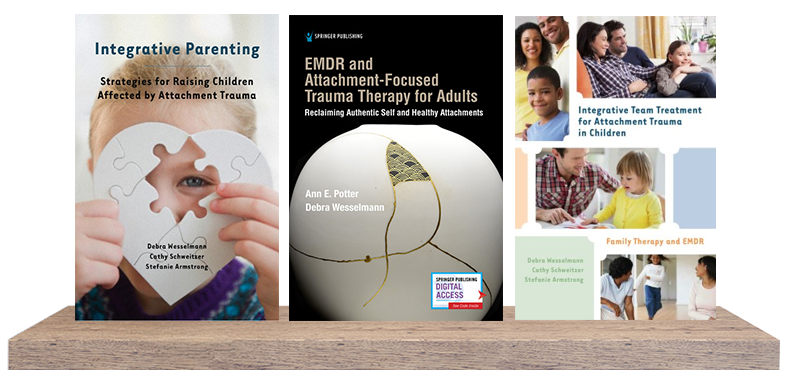Common Questions
We offer a wide range of therapeutic options, including EMDR therapy, Cognitive Behavioral Therapy (CBT), Dialectical Behavioral Therapy (DBT) for adults, parenting education, Brainspotting, and group, individual, and family therapy. We also offer two models for treating attachment trauma, including an integrative EMDR and family therapy model for children and an EMDR and parts work model for adults.
During your initial consultation, our therapists will evaluate your concerns and recommend a treatment plan tailored to your needs. We personalize our approach to address specific issues, such as trauma, attachment concerns, anxiety, depression, adjustment disorders, or family problems.
Eye Movement Desensitization and Reprocessing (EMDR) is an evidence-based therapy that helps individuals process traumatic experiences, manage anxiety, and alleviate symptoms of depression. It works by facilitating the brain's natural healing process, reducing emotional distress associated with difficult memories and removing reactivity to triggers in present day.
Symptoms can vary, but here are some common signs:
- Anxiety: Panic attacks, social avoidance, fear of places where escape might be difficult, physical symptoms like stomach problems, obsessive thoughts, or specific fears. Children may display anxiety through concentration problems, hyperactivity, or anger.
- Depression: Persistent sadness, lack of interest in activities, low energy, sleep issues, appetite changes, feelings of hopelessness, social withdrawal, or physical symptoms like headaches. In children, this can manifest as irritability, anger, or fatigue.
- Trauma: Nightmares, avoidance of reminders, hypervigilance, dissociation, or a need for control.
Family therapy addresses issues such as conflict, communication difficulties, and parenting challenges. Our approach includes family therapy, CBT, and parenting training to improve relationships and create a healthier home environment.
Adjustment disorders involve emotional or behavioral difficulties that occur within three months of a significant life change, such as job loss, divorce, or a move. We treat adjustment disorders using individual and family therapy, CBT, and EMDR to help clients manage stress and navigate life transitions.
Yes, we offer specialized treatment for adults struggling with substance abuse or other addictive behaviors. Our approach combines therapies such as EMDR, CBT, and mindfulness techniques to address underlying causes and develop healthier coping strategies.
The Integrative Model combines EMDR and family therapy to address attachment trauma in children. This approach treats both the child and the family system, promoting healing and healthier attachment patterns.
The first session focuses on discussing your concerns, gathering background information, and developing a personalized treatment plan. It’s also an opportunity to share your goals and ask any questions about the therapy process.
The length of therapy depends on individual needs and treatment goals. Some clients benefit from short-term therapy, while others may need longer-term support. We will work with you to create a plan that fits your situation.
Yes, we offer Dialectical Behavioral Therapy (DBT) classes for adults and teens. Group settings can provide additional support, skill-building, and shared experiences.
Yes, we accept most major insurance providers. Please contact our office to verify your coverage and discuss any out-of-pocket expenses.
You can schedule an appointment by calling, emailing, or filling out the contact form on our website. We will work with you to find a time that fits your schedule.

